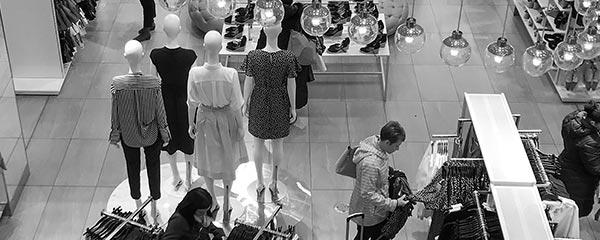One of the hallmarks of our age is emotional polarization, the increasing tendency for Americans to define themselves in terms of their political identity and then to look at the rest of the world through that political lens -- often with heavily emotional investment.
In practical terms, this means Americans' views of what's going on around them are often guided by the need to maintain cognitive consistency with their underlying -- and highly salient -- identities as Republicans or Democrats.
This is most clearly manifested in Americans' views of the president's job performance. With a Republican in the White House, Americans who identify as Republicans overwhelmingly say they approve, while those who identify as Democrats overwhelmingly disapprove.
This is not a new phenomenon, as my colleague Jeff Jones has recently reviewed. But the degree to which underlying political identity controls views of the president has reached unprecedented levels. Most recently, 93% of Republicans say they approve of Donald Trump's job performance, contrasted with 6% of Democrats, an 87-percentage-point gap that ties a newly established Â鶹´«Ã½AV polarization record.
Personal political identity also appears to affect attitudes on measures that have no overt political component to them -- one of the more compelling research findings I've explored in recent years. As one example, Americans' straightforward assessments of the healthcare situation in the U.S. differ significantly by their underlying political identity.
Views of the Economy No Exception to Observed Polarization
It should come as no surprise that Americans evaluate the economy through a political lens as well -- an important point of focus, given that the economy is always a key issue in a presidential campaign (and the leitmotif of Trump's reelection positioning in 2020).
I looked at 11 different ways in which Â鶹´«Ã½AV has measured Americans' views of the economy in recent months. These measures range from the very broad (economic conditions in the U.S.) to the very personal (your personal financial situation). The key finding: Republicans are more positive than Democrats in their responses to every measure. In other words, Americans' political identities clearly reflect the way they look at the nation's economic situation and the way they evaluate their own personal financial situations.
-
The political divide is greatest on two questions that measure economic momentum: "Are you personally better off than you were three years ago?" and "Right now, do you think that economic conditions in the country as a whole are getting better or getting worse?" The "better off than three years ago" question is the most polarized measure of any that I looked at, with a 60-point Democratic-Republican gap. There is a 54-point gap between parties on the "direction of the U.S. economy" measure.
-
Three measures focused on "here and now" economic situations have slightly smaller partisan gaps of 39 to 48 points: ratings of the current economy; a question asking whether it is easier to buy things in stores now than three years ago; and ratings of satisfaction with the state of the economy.
-
We see smaller -- but still significant -- partisan gaps of 23 to 33 points on measures of being personally better off financially than one year ago; views of current personal financial situations as getting better or worse; basic ratings of current financial situations; a question asking whether the American dream is still alive; and a measure of the prospect of being better off financially in a year.
-
A question asking Americans whether today's youth will be better off than their parents shows a partisan gap of 14 points.
Republicans' and Democrats' Income Differences Just Part of the Story
The partisan differences in some of these measures partly reflect underlying divides in the composition of the two major party groups. Republicans have somewhat higher incomes than Democrats, for example, and one's income level logically relates to how one sees the economy.
But income differences are not the entire story. Partisanship is clearly a factor in Americans' ratings of the U.S. economy, even when one controls for income.
I looked at an aggregate of Â鶹´«Ã½AV's core economic confidence measures in 2019 and found that Americans' party identification relates to overall confidence in the U.S. economy within income groups.
-
Among those making $75,000 a year or more, there is a 48-point gap between Republicans' and Democrats' excellent/good ratings. Among those making less than $30,000 a year, the gap is 37 points.
-
The gap is even larger on the economic momentum measure -- 66 points -- with 87% of Republicans making $75,000 or more a year saying the economy is getting better, compared with 21% of Democrats in the same income range. The partisan gap in the "getting better" measure among those making under $30,000 a year is 45 points.
(Pew Research's shows similar patterns: Party differences persist within income groupings.)
The impact of partisanship is somewhat more complex when it comes to Americans' evaluations of their personal financial situations.
Republicans are more positive than Democrats about the direction of their finances, even when one controls for income. Among those making $75,000 a year and more, for example, 49% of Democrats said their personal financial situation was getting better. That rose to 67% among those in this income group who identified as independents and 82% who were Republicans. (These results are based on an aggregate of surveys taken between 2017 and 2019.)
But partisanship appears to be somewhat less of an issue when we ask Americans to rate their current financial situations. There are no significant differences in party groups' ratings of their personal financial situations among those making $75,000 a year and more. All were positive. Similarly, there are no major differences in ratings of personal finances among those making less than $30,000 a year. Among those in the middle income group -- those making between $30,000 and $74,999 a year -- Republicans are significantly more positive than Democrats.
Another indicator of how partisanship affects views of the economy is the fascinating "flip" in ratings when the party of the president changes. As Â鶹´«Ã½AV reported at the end of 2017: "Republicans' confidence in the economy stood at +46 in 2017, a 77-point improvement from 2016" and "In 2017, Democrats' economic confidence fell to -20 from +18 in 2016, a 38-point decline." In other words, Republicans became dramatically more positive about the economy when a Republican took control of the White House, and Democrats became concomitantly more negative.
We see the same phenomenon in Americans' views of their personal financial situations when we look at the change by partisanship between 2016, the last full year of Democrat Barack Obama's administration, and 2019. In 2016, Democrats were significantly more likely than Republicans to say their personal financial situations were getting better. Now, as noted above, the situation is flipped -- Republicans have become much more likely to say their personal financial situations are getting better. The gap between Republicans' and Democrats' assessments of their personal financial situations has also expanded significantly between 2016 and 2019.
There was a similar flip in our measure of being better off now compared with three years ago. Today's 60-point partisan gap that has Republicans as more positive compares with a 33-point gap in favor of Democrats in 2012, with Democrat Obama in office.
In January 2016, Democrats were more positive than Republicans in saying they were better off financially than a year prior, as well as in their projections that they would be better off in a year. Now, Republicans are more positive than Democrats on both measures.
Bottom Line
Americans' views of the economy, at both the national and personal levels, are significantly related to their political identity. At this juncture in history, reflecting the Republican control of the presidency, Republicans are generally much more positive than Democrats.
Attitudes about the economy have clearly become a Rorschach test of sorts, with Americans extracting substantially different interpretations of what they see around them, based on their politics. Some partisans may simply adopt the positive or negative positions of their thought leaders without giving much consideration to the reality of economic circumstances, partly because it's hard for the non-economists among us to actually figure out what the reality is. Others, more attuned to economic matters, may be picking and choosing which aspects of the economy they focus on (e.g., unemployment versus inequality), depending on their underlying predilections.
Most political experts point to the economy's importance in predicting the probability of an incumbent president's being reelected. But it's possible that the predictive power of Americans' stated confidence in the economy will weaken this year if these views have become so rigid and partisan that they fail to reflect underlying concerns as the "real" economy changes. As : "Americans' views of the economy have become so hardened along partisan lines that the economy may matter less in next year's presidential election than in the past."
But -- of course -- if Americans define the situation as real, the consequences may end up being real. In other words, if Democrats (and Democratic-leaning independents) believe the U.S. economy and their personal financial situations are getting worse, they may be unlikely to support Trump for reelection for just that reason -- regardless of the underlying economic reality. And Republicans and Republican-leaning independents may stick with Trump because they view the economy in a positive light, even if the economic reality changes.




